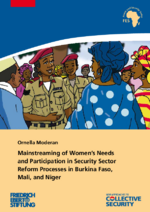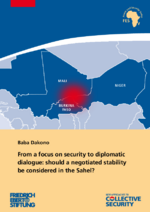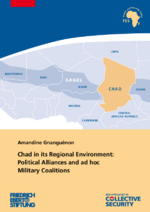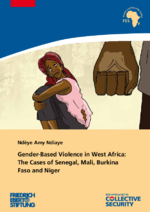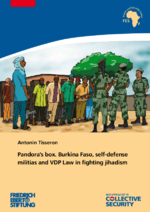New Approaches to Collective Security
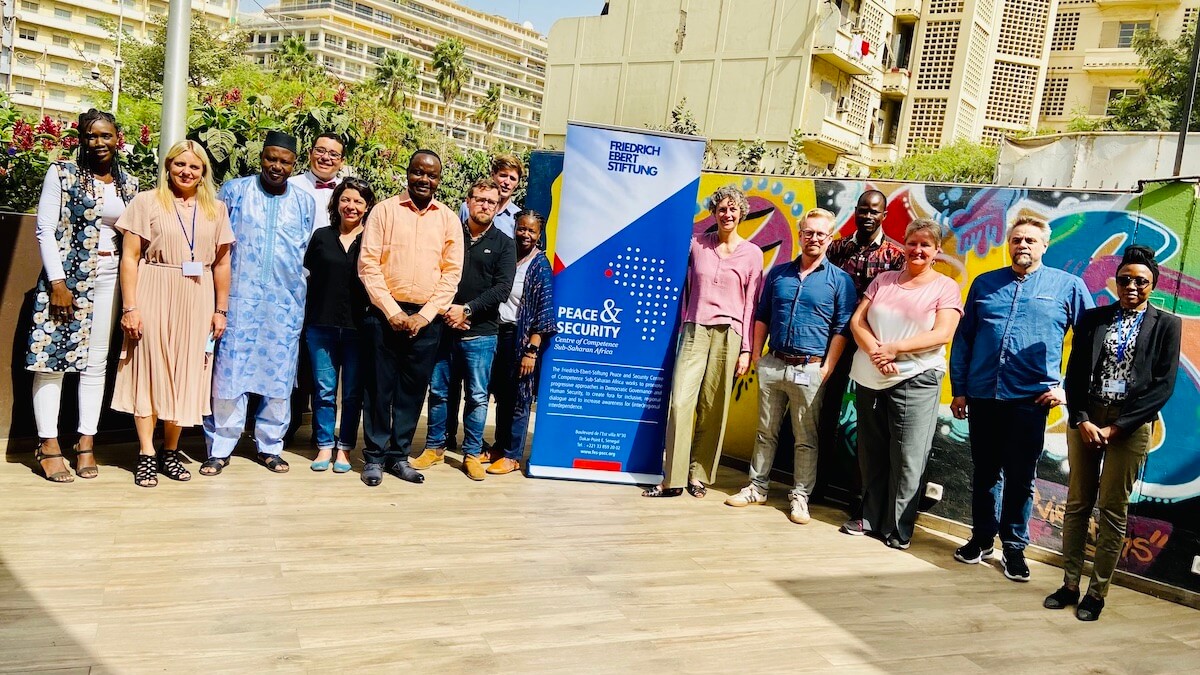
In many African countries violent conflict determines the socio-political agenda
There is no doubt that in many African countries violent conflict represents a major political and social challenge. Despite their differing constellations, what these conflicts have in common is poor governance and its concomitant side-effects, ranging from corruption and oppression, challenged legitimacies to poor socio-economic participation: Favouring a spiral of violence and subsequent conflicts. At the same time, the nature of the conflicts is ever-changing. In addition to conflicts perceived as ethno-political, or disputes over power and resource distribution, one is confronted with transnational terrorist violence combined with organised crime, diminishing resources, and climate change: factors that collectively contribute to the weakening of governmental structures.
Powerful tools to face insecurity?
International Peace Support Operations (IPSO), including various forms of International Peace and Training Missions, are one of the most powerful international tools available for the maintenance of international peace and security. In a number of African countries, we have been witnessing the work of International Peace Support Operations with different mandates by various multilateral or multinational organisations, with varying contingent sizes and military and civilian components. In addition, the term IPSO also encompasses military train and equip programmes for national armies. There are currently IPSO in the Sudan, South Sudan, Somalia, the Central African Republic, the Democratic Republic of Congo, Mali, the Gambia, Guinea Bissau, Western Sahara and the Lake Chad Basin. EU Military Training missions are present in Somalia, the CAR, Mali, in the Sahel and Mozambique.
Nonetheless, after the unexpected rapid takeover of Afghanistan by the Taliban and at a time when rule-based multilateralism is increasingly contested in light of the Russian invasion of Ukraine, there has been a heated debate about the prospects for success and failure and ultimately the general purpose and impact of international military engagement.
Building on results of the first project-phase, with its focus on the African Peace and Security Architecture, the second cycle of „Futures of collective Security in Africa?” centers.
International Peace Support Operations – Roles for Civil Society
National perspectives and societal experiences with IPSO shall inform policy advice. The objective: Generalized recommendations for a people-centered adaption of IPSO that enhance the chances of political and civilian led political settlements and ultimately contribute to collective security.
Therefore, the FES engages its network of experts and policy makers to develop joint perspectives on the future of IPSO in Africa. Dialogue processes on country as well as regional level, involving civil society organizations, experts, policy makers but also feminists and representatives of marginalized groups, discuss expectations and contributions to the improvement of human security and ultimately peaceful political settlements. Special attention is given to a gender sensitive approach. It will be streamlined into all processes and outputs with the clear aim to promote gender justice.
Our intentions are:
- To feedback progressive demands and insights of Civil Society on IPSO back into FES’s political networks and thereby strengthen mechanisms of collective security in Africa.
- To impact considerations by regional, continental and international policy and decision makers how to mandate, design, and implement International Peace Support Operations.
- To enhance democratic participation, gender justice, human security of the population.
- To consider and prepare for new threats to peace and security.
Working through the FES partner network and our country offices, platforms are provided to deliberate on the impact and progress of respective IPSOs and to amplify the voice of civil society. On a continental level, local expertise is being connected with international debates on collective security and peacekeeping doctrines. Continental workshops aggregate, compare and debate local insights to formulate policy recommendations. These recommendations are then being shared on national and regional levels, in close cooperation with FES offices in Berlin, Addis Ababa (AU) as well as Brussels (EU) and New York (UN).
Friedrich-Ebert-Stiftung
Peace and Security Centre of Competence Sub-Saharan Africa
Villa Ebert
Avenue des Ambassadeurs
Fann Résidence
25516 Dakar-Fann
Sénégal
